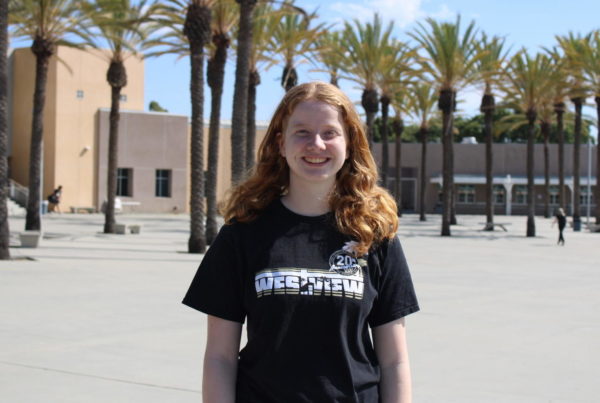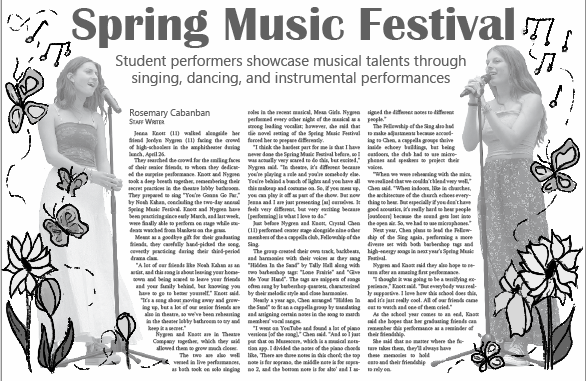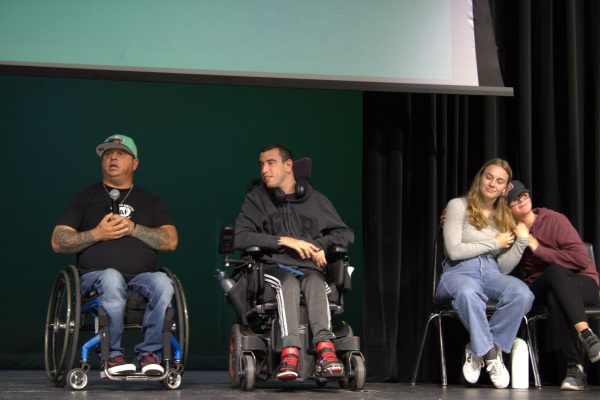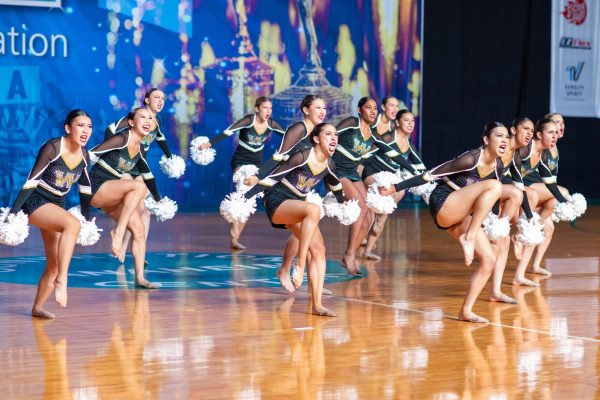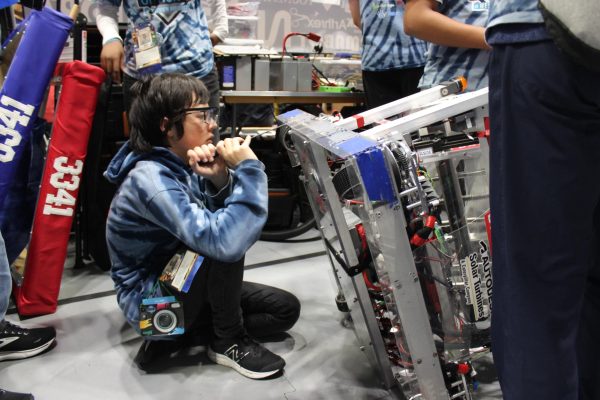Option 16 wins Engineering Inspiration Award
April 7, 2023
Option 16, Westview’s First Robotics Competition (FRC) robotics team has almost 4,000 hours of community service and outreach compiled over the past few months. With this extensive time spent in the community, the team hoped to earn the Engineering Inspiration Award, which is given to one team out of the 50 that participated in the San Diego regionals at the UCSD LionTree Arena from March 24-26, advancing them to the Worlds competition in Houston, April 19-22.
Jamie Chin (12), the president of Option 16, remembered that the judges would slowly hint at the winning team, building tension before the announcement of the winner broke over the room—for some, shattering hope, and for others, inciting excited cheers.
The judges first said, “This team had 4,000 hours of outreach this year.”
“We thought it could be us because we had around 3,600,” Chin said.
The judges continued. “From east view to Westview…”
“I [thought], ‘Oh my god, that’s definitely us!’” Chin said.
The students, after sitting on the edges of their seats through this announcement, jumped up and cheered, then made their way down to the stage where they were presented with the award.
“This was really big for us because this is the first time our [current] team has ever gone to Worlds,” Chin said. “We qualified two years ago, twice in a row actually, but because of COVID, we never actually got to go.”
This award is given to a team that exemplifies FIRST Robotics’ core values, like diversity and inclusion, and an extensive amount of outreach. According to Gowri Ramaprasad (11) who is part of the electrical team, Option 16 had spent the first four weeks of their season focusing solely on going into the community, and organizing events and workshops, including all of the team members in their efforts.
“We volunteered with elementary and middle schools in our local community, and we hosted STEAM workshops,” Ramaprasad said. “We did [a workshop] with Girls Scouts earlier this year. These kinds of things are to help kids get involved with hands-on learning at an early age and introduce them to robotics.”
While this award was for a non-technological achievement, the team also prepared extensively for the mechanical and robotic aspects of regionals. Before building the robots, they practiced their design and building skills by doing small projects.
“[After the outreach,] we had our Integrated Advanced Projects (IAP), where we simulated how we would be working together during the competition season,” Ramaprasad said. “So we built things like a ball shooter, an intake mechanism, and a turret.”
This helped the team get a feel for building a robot and helped individuals decide which path they wanted to take for this season: mechanical, software, electrical drive team, or business.With practice from their IAP projects, the team set to work building and designing their final bot.
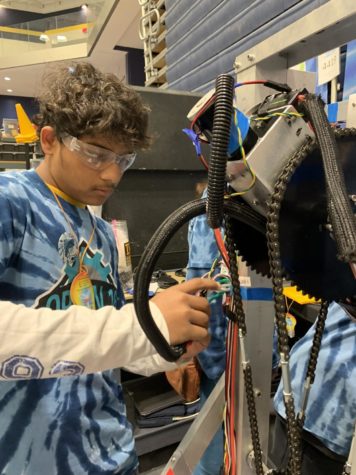
The competition’s task, a block-stacking-and-balancing challenge, involved all members of the team from all different paths, coming together to maintain and drive the robot throughout the three-day competition.
On the second day of regionals, during a practice match, the team’s robot was tipped over by another team, damaging some of its electrical components.
“Something called the limit switch was damaged,” Ramaprasad said. “But, thankfully, it was a pretty easy fix. [The switches] are very fragile, but the electrical support team went in and got it taken care of.”
While the electrical and mechanical teams were busy maintaining the robot and preparing it for its next match, Xochitl Martinez (11), a member of the electrical pathway, and scores of other students from Westview and other schools were pacing in a hallway, frantically going over presentations in their head. When called, the students would present themselves and their teams for awards, like the Engineering Inspiration Award, or in Martinez’s case, the Dean’s List.
This award is given out to students who represent and exemplify the FIRST core values in their communities. Each team nominates two students and, after the judges make their decisions, two of the nominees will advance on to Worlds, regardless of if their team goes, and get the chance to win scholarships and represent their communities.
“Sitting outside of the Dean’s List room waiting was super-stressful,” Martinez said. “I was working with coach Kim Carol, our mentor, and Jamie and Jenny [Zhu (12)], our president and vice president of operations, preparing. Then, I went in there, and I was super relieved because [the judges] were super nice, and it was a conversation more than anything.”
Later, after the team had won the Engineering Inspiration Award, the time came for Martinez to find out if she had been picked for the Dean’s List.
“They first gave it out to someone from another team, then for the second person, [the audience] gave a little drumroll and it was me!” Martinez said. “Right as the judge announced it, half of the team body-slammed me. Everyone was cheering; it was so loud. I thought my ears were going to break.”
Overall, the competition was filled with nerve-wracking presentations in front of judges and three whole days of competing, yet Chin said that winning two awards made her extremely proud of the team and the things they accomplished.
“Getting through all of this together and seeing that transpire into winning the awards was such a big accomplishment,” Chin said. “It made me realize how much we improved as a team, and how much we gave to the community.”


